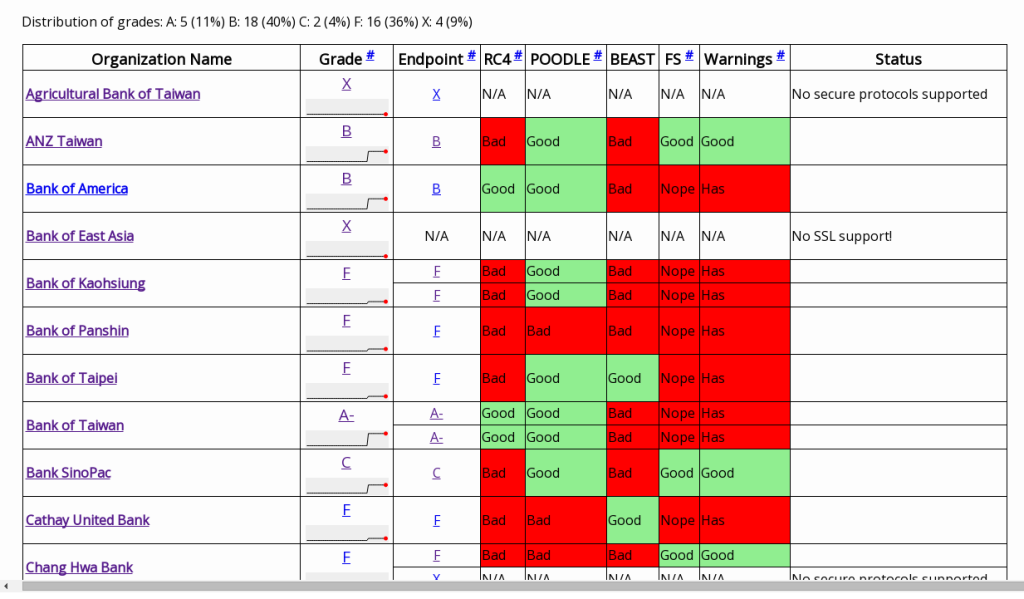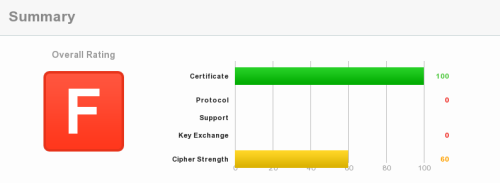My previous post, titled SSL status of Taiwanese banks: a sad affair sparked a lot of visits and lot of discussion, clearly touching on something important. It was great to bring to light how well (or badly, in this case) these organizations are doing, as internet security should be one of their key focus.
Many of the organizations improved their setup since then, and it became quite troublesome to manually check each bank and each change, update the table and so on. It’s also good to have not just a snapshot in time, but a continuous record of how they were doing.
Thus I’ve hacked together some monitoring scripts, put the results online, and here’s the Taiwan Financial Institute SSL Status page.

Page features include:
- Automatically run once a day
- Highlighting issues, showing grade evolution
- RSS feed of grade changes
- Automatic tweeting of daily status and changes as @twbankssl
This is quite a bit more than “minimal features”, but wanted to make something that is actually useful.
